
In November 2016 I co-wrote an article for New Matilda exploring why it is important for those on the left to discuss population sustainability. Although the feedback was overwhelmingly positive, it was suggested that the debate is invalid unless it is inclusive of migrants or indigenous Australians. Which got me thinking …
The literature of what our indigenous communities think is currently very scarce. Thankfully, there has been a recent opportunity for me to discuss with an indigenous representative in Canberra to interview on this very topic.
Richie Allan and Violet Sheridan
Richie Allan is involved in cultural awareness training and cultural tours and is concerned about over-development around Canberra and the repercussions of ongoing growth. These are concerns shared by his community. Richie’s mother, Violet Sheridan (also a director of Traditional Owners), ran as a candidate for Sustainable Australia in the 2016 elections.
When I met with him, this is what Richie had to say about population sustainability.
Q: Richie, what can you tell me about your community and yourself, including the main issues that are important to your community and that you are passionate about?
‘My community, the Ngunnawal people, are very concerned about over-development on our sacred lands. For example, the Ginninderra Falls is a very important site to my people where important business and initiation ceremonies are held. We want our future generations to be able to experience this tradition in nature and not in outer suburban development.’
Richie explained that there are so many rich and varied sacred sites, places of significance, song lines and stories, just in the ACT alone.
How can you speak of ‘diversity’ when you don’t know whose country you are in?
‘So many of these are unknown and invisible to non-indigenous people. Why is it that people speak of diversity through growth and development when they don’t even know whose country they are on or even how to say “hello” in our native tongue? We can’t maintain our links to our cultural heritage with all these houses and development projects going up.’
Richie also shared that it is hard for Indigenous groups to have an impact because much of the federal funding for indigenous affairs is lost to bureaucracy with only a small proportion ending up with grassroots groups.
Why run for the Sustainable Australia Party?
Q: Can you tell me how Violet decided to run for Sustainable Australia [political party] and why does she connect strongly with a political party that has a strong focus on population issues?
‘The smaller size of Canberra has a more inherent sense of community and therefore [it] was easier for two people from different communities, campaigning for similar issues, to find each other. Smaller spaces have a greater sense of community that may be lost in larger centres such as Sydney or Melbourne.’
Richie met Martin Tye (the Sustainable Australia candidate in the previous ACT election) through social media, and since then the two have regularly met up. They connected by finding lots of common ground in regards to environmental and developmental concerns. Richie was invited to participate in the last ACT election, but he found he did not have time to run as a candidate. Violet shared Richie’s concerns and ran in the 2016 ACT election.
Australia’s population growth killing indigenous culture and heritage
Q: In regards to population growth in the ACT, why is this particular issue a concern for you as an indigenous activist?
‘Rapid population growth is killing indigenous culture and heritage in the ACT.’
Richie shared his frustration that the indigenous community is not consulted adequately about town planning and development processes. For example, while the planning authorities claim that they have indigenous consultants in the planning processes, they often select individuals who tell the government and developers what they want to hear. Richie strongly believes that the communities, whose lands are impacted, are not consulted at the grassroots level and that they do not hear about planning proposals until it is too late.
Queries skilled immigration when indigenous talent under-utilised
Q: What is your knowledge of Australia’s population policies more broadly and how do you and your community feel about these? Is this a concern that resonates with indigenous communities across Australia?
‘It does not make sense to have a large skilled migration program when there are enough skilled people already here.’
Richie believes that there is a very considerable under-utilisation of indigenous talent and skills, especially considering the high levels of unemployment among indigenous communities. Too often, non-indigenous people are employed in indigenous programs. Richie stresses that
‘it is not about stopping migration, just slowing it down so that everyone in the community benefits better.’
He made it clear that a generous humanitarian program is still essential, although cautioned that ‘refugees are struggling to afford to live in the city, as it is too expensive, but there are no jobs or livelihoods out in the bush.’
Indigenous culture conflicts with growth for growth’s sake policies
Q: How do you think national population policies might differ if indigenous communities were consulted and these consultations were successfully implemented?
Richie is pessimistic about more indigenous people being represented in government,
‘as it would not be considered by the main powers economically viable for treaties to be recognised and for the indigenous way of life to become mainstream.’
Richie does believe that although there is a diversity of opinions among indigenous peoples, that there would be less development and “growth for growth’s sake” if Indigenous people were more represented in parliament or policy-making decisions.
Ideology prevents the left from finding common ground with indigenous
Q: Many of the left believe in open-border policies while also being active in supporting Aboriginal people’s rights to their culture and land. Do you think these two aspirations can be balanced or reconciled?
‘People on the left can be stuck on their own agendas. It is only when people are able to put their own agendas aside and reach out to everyone that we can finally get things done. At the moment identity is more important to people than reaching out and finding common ground.’
As an example of this disconnect, Richie reflected that there was a lack of political presence during the Invasion Day protests in the ACT, even [among] the left-leaning politicians.
Richie also explored the idea that in modern Australian society there is personal identity but collective culture has been lost to greed and money.
Working collaboratively with indigenous community
Q: Do you have any advice on how groups advocating for sustainable population in Australia might work collaboratively with indigenous community activists?
‘Find a balance between the aims of the group and the objectives of the indigenous people you are working with. It is very important to bring elders into the conversation and work collaboratively so people don’t feel they are being used or being talked down to.’
Something’s going to have to give
Q: Any take-home words for environmentalists and left-leaning activists?
‘Population growth is killing people. My son and daughter-in-law have to live with me because they can’t afford their own home. At this rate of growth, it is impossible to plan properly. If we keep going at the rate we’re going, all the other issues, such as crime, will also jump. We can’t sustain this for much longer, something’s going to have to give.’
Final Thoughts
In interviewing Richie, I was personally taken by his insight into the relationship between his community with their local geographic area. What may have appeared to many of us as another group of trees, a gently undulating hill or another patch of cleared land for yet another Canberra suburb may very well be a place of deep cultural or spiritual significance. I was also touched by how many similar areas of opinion he and I shared, particularly concerns regarding town planning and economic growth at all-cost.
I would certainly not try to lay claim to the fact that Richie’s interview is totally indicative of what all indigenous people think in regards to population. Like the rest of us, I am very certain one would find a diversity of opinions depending on the individuals spoke to. However, his views have similarities to Nola Turner-Jensen, Wirandjuri Australian, director of CultuRecode, and member of Sustainable Population Australia. She says the following:
Time to bring the invisible people in
“To add the perspective of Aboriginal Australians in an article about the Australian population, captures the paradoxical situation of Indigenous people in this country. On the one hand, they are excluded from the policies and institutions who decide on such issues. They have been herded to the fringe of society and the economy, with a huge bank of knowledge on Ancient Australia, sitting invisible to most. On the other hand, the world is looking for sustainable solutions and we are starting to realise that constant progress, individualism and material accumulation is not creating a healthy future for Australia’s children or environments. For 50,000 years this country’s Ancient custodians lived everyday according to what was best for every single one of Australia’s living landscapes and people. As experts in creating local sustainable and harmonious societies, Indigenous people and their knowledge wait for the chance to contribute to looking after Australia again. This time in a shared custodianship. It is time to bring the invisible in, and share the spotlight together, before it is all too late. “
This also reflects with what can be found in the literature. For example, from the concluding comment of the Aboriginal Deaths in Custody Watch Committee (1994):
“Ecologically our land is on its knees: with help it can survive and resuscitate itself, but with any major increase in population this land will die, and we will die with it.”
I would certainly encourage further discussions and collaboration with indigenous communities on this very important issue.
Michael Bayliss is President of the Victoria and Tasmanian Branch of Sustainable Population Australia. He would like to thank Richie Allan from Traditional Owners Aboriginal Corporation and Martin Tye from Sustainable Australia for making this article possible.




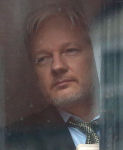
 The Australian Bureau of Statistics (ABS) has released visitor arrivals and departures data for the month of January, which posted record annual permanent and long-term arrivals.
The Australian Bureau of Statistics (ABS) has released visitor arrivals and departures data for the month of January, which posted record annual permanent and long-term arrivals.


 Ex Labor leader, Mark Latham, recently joined Pauline Hanson's One Nation Party and will be running for the NSW legislative council at the next state election. Here is his 8-Point Plan to "save Sydney “suffocating” from overpopulation and overdevelopment."
Ex Labor leader, Mark Latham, recently joined Pauline Hanson's One Nation Party and will be running for the NSW legislative council at the next state election. Here is his 8-Point Plan to "save Sydney “suffocating” from overpopulation and overdevelopment." Australia’s annual permanent migrant intake has fallen to its lowest level in more than a decade after a Federal Government crackdown on dodgy claims. Home Affairs Minister Peter Dutton said the government had restored integrity to the migration program to make sure the “best possible” migrants were brought into the country through tougher vetting. William Burke from
Australia’s annual permanent migrant intake has fallen to its lowest level in more than a decade after a Federal Government crackdown on dodgy claims. Home Affairs Minister Peter Dutton said the government had restored integrity to the migration program to make sure the “best possible” migrants were brought into the country through tougher vetting. William Burke from 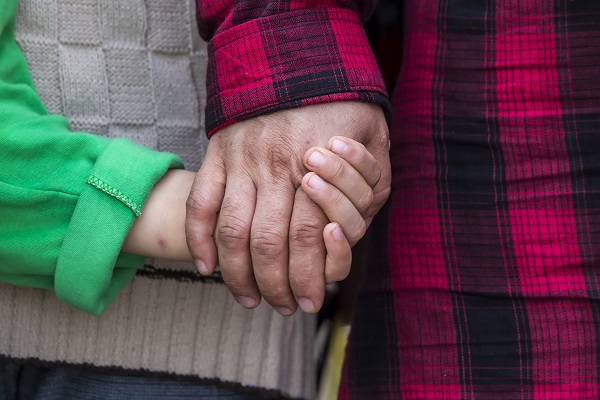


 (Article by Sally Pepper.) On New Year's Day, January 1st 2018, as I surfaced around 10.00 a.m, I heard on the news that power prices and tolls on roads around Melbourne will both increase and, that this year many Victorians will experience additional economic hardship. My immediate defensive thought was, "Well I don't use tollroads and I guess I can be more frugal with my use of gas and electricity."
(Article by Sally Pepper.) On New Year's Day, January 1st 2018, as I surfaced around 10.00 a.m, I heard on the news that power prices and tolls on roads around Melbourne will both increase and, that this year many Victorians will experience additional economic hardship. My immediate defensive thought was, "Well I don't use tollroads and I guess I can be more frugal with my use of gas and electricity."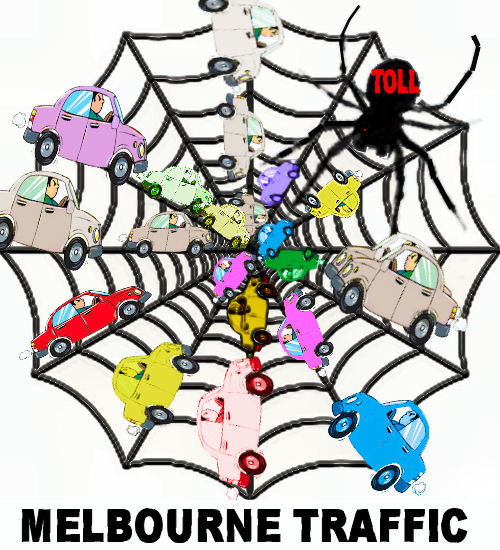
 Chief of Staff to former Prime Minister Tony Abbott, Peta Credlin, is the latest to question Australia’s mass immigration program, which flooded NSW (read Sydney) and VIC (read Melbourne) with a record 185,500 net overseas migrants (combined) in the year to June, further crush-loading our two biggest cities. This article was first published on Macrobusiness at
Chief of Staff to former Prime Minister Tony Abbott, Peta Credlin, is the latest to question Australia’s mass immigration program, which flooded NSW (read Sydney) and VIC (read Melbourne) with a record 185,500 net overseas migrants (combined) in the year to June, further crush-loading our two biggest cities. This article was first published on Macrobusiness at 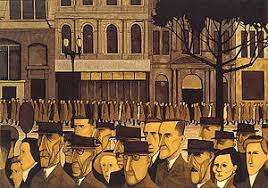

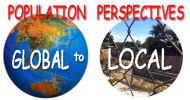
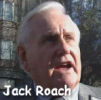 Public Seminar with two speakers:
Public Seminar with two speakers: 
 “The big issues we feel are job security, housing affordability, planning in our suburbs and our environment. And all of those major indicators are going backwards with this onslaught of rapid population growth. So, it’s changing our daily lives. It’s gone beyond some big number into the future. It’s actually hitting us in the face when we drive out of our driveway in the morning and we try and get to work. Or when we try to look up a job when we try to get our next opportunity. Or when we look at our green space in our suburb that’s disappearing. Or looking at our urban heritage… that’s just being bulldozed for this highrise development”. (William Bourke, Sustainable Australia Party, speaking on 3AW to Neil Mitchell)
“The big issues we feel are job security, housing affordability, planning in our suburbs and our environment. And all of those major indicators are going backwards with this onslaught of rapid population growth. So, it’s changing our daily lives. It’s gone beyond some big number into the future. It’s actually hitting us in the face when we drive out of our driveway in the morning and we try and get to work. Or when we try to look up a job when we try to get our next opportunity. Or when we look at our green space in our suburb that’s disappearing. Or looking at our urban heritage… that’s just being bulldozed for this highrise development”. (William Bourke, Sustainable Australia Party, speaking on 3AW to Neil Mitchell) 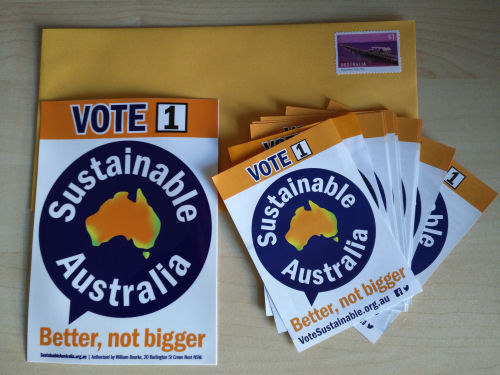

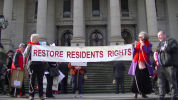 The Minister for Planning has publicly insisted [1] that Victoria has to fit 10 million people in Victoria with four more million in Melbourne and that that is the reason for the planning dictatorship he is trying to force on Victorians. If we did not 'have' to fit in millions more, no new plan would be 'needed'. Population numbers as a topic dominate the mainstream press,[2] but three residents' action groups in Planning Backlash - possibly trading on their marginal electorate status - reportedly held the rest to ransom for their presence at the Planning Backlash rally on the steps of parliament 8 June 2017. Their ransom was censorship of their fellow groups in a promise that no rally speakers would mention the role that population growth has in driving Plan Melbourne 2017-2050 and all the destruction it promises. Even though the Victorian Government has openly published several written policies for massive population growth, [3] the Yarra Residents' Coalition, Brunswick and Moreland groups of Planning Backlash have been identified as censoring debate about this on the very steps of Victoria's parliament.
The Minister for Planning has publicly insisted [1] that Victoria has to fit 10 million people in Victoria with four more million in Melbourne and that that is the reason for the planning dictatorship he is trying to force on Victorians. If we did not 'have' to fit in millions more, no new plan would be 'needed'. Population numbers as a topic dominate the mainstream press,[2] but three residents' action groups in Planning Backlash - possibly trading on their marginal electorate status - reportedly held the rest to ransom for their presence at the Planning Backlash rally on the steps of parliament 8 June 2017. Their ransom was censorship of their fellow groups in a promise that no rally speakers would mention the role that population growth has in driving Plan Melbourne 2017-2050 and all the destruction it promises. Even though the Victorian Government has openly published several written policies for massive population growth, [3] the Yarra Residents' Coalition, Brunswick and Moreland groups of Planning Backlash have been identified as censoring debate about this on the very steps of Victoria's parliament. Video of conference inside: Speeches verbally translated in English, live. Leaders of several European nationalist parties gathered for the ‘Freedom for Europe’ congress, in Koblenz, on Saturday, January 21. The meeting was the first official appearance of Frauke Petry, chair of the AfD (Alternative for Germany), alongside Front National leader Marine Le Pen. Both were joined by Geert Wilders, founder and leader of the Dutch PVV (Party for Freedom), and Liga Nord leader Matteo Salvini. Dubbed a “European counter-summit”, this first-of-its-kind gathering was organised by the Europe of Nations and Freedom (ENF) group from the European Parliament.
Video of conference inside: Speeches verbally translated in English, live. Leaders of several European nationalist parties gathered for the ‘Freedom for Europe’ congress, in Koblenz, on Saturday, January 21. The meeting was the first official appearance of Frauke Petry, chair of the AfD (Alternative for Germany), alongside Front National leader Marine Le Pen. Both were joined by Geert Wilders, founder and leader of the Dutch PVV (Party for Freedom), and Liga Nord leader Matteo Salvini. Dubbed a “European counter-summit”, this first-of-its-kind gathering was organised by the Europe of Nations and Freedom (ENF) group from the European Parliament.  "It's not often you hear about something like that happening. The man who called Donald Trump a 'would-be dictator' got bearish after the President Elect's victory in November and lost nearly a billion dollars. Reportedly, he thought a Trump win was going to cause massive sell. Wrong! The market rallied and the hedge fund legend and Clinton supporter lost out. The Dow Jones has climbed nearly 10% since November 9th." Analysts are saying that Trump's new policies could boost the economy and corporate earnings in particular for this market rally. "So it looks like Soros's millions of dollars sunk into a Superpac, back in the Clinton campaign, didn't work out." A super PAC is a modern breed of political-action committee that is allowed to raise and spend unlimited amounts of money from corporations, unions, individuals and associations to influence the outcome of state and federal elections. (Quotation from presenter in Boom Bust, [752] Why is the America middle class disappearing?) - see video inside for the report, plus an analysis of how and why the middle classes are disappearing from the United States.
"It's not often you hear about something like that happening. The man who called Donald Trump a 'would-be dictator' got bearish after the President Elect's victory in November and lost nearly a billion dollars. Reportedly, he thought a Trump win was going to cause massive sell. Wrong! The market rallied and the hedge fund legend and Clinton supporter lost out. The Dow Jones has climbed nearly 10% since November 9th." Analysts are saying that Trump's new policies could boost the economy and corporate earnings in particular for this market rally. "So it looks like Soros's millions of dollars sunk into a Superpac, back in the Clinton campaign, didn't work out." A super PAC is a modern breed of political-action committee that is allowed to raise and spend unlimited amounts of money from corporations, unions, individuals and associations to influence the outcome of state and federal elections. (Quotation from presenter in Boom Bust, [752] Why is the America middle class disappearing?) - see video inside for the report, plus an analysis of how and why the middle classes are disappearing from the United States. Just how effective is the power of prayer? For many of us who are poor and helpless, prayer is the only WMD that we can get our hands on.
Just how effective is the power of prayer? For many of us who are poor and helpless, prayer is the only WMD that we can get our hands on.
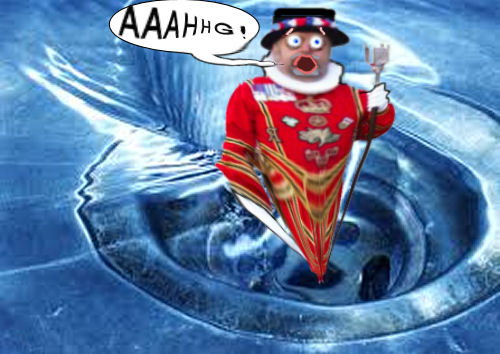
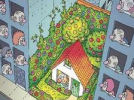 Jeff Dorset has begun a campaign addressed to the Prime Minister to reduce Australia`s economic, non refugee immigration intake to economically.environmentally and socially responsible level of 50,000 net pa and significantly reduce 457 Visa and other foreign worker import program. Please consider signing it.
Jeff Dorset has begun a campaign addressed to the Prime Minister to reduce Australia`s economic, non refugee immigration intake to economically.environmentally and socially responsible level of 50,000 net pa and significantly reduce 457 Visa and other foreign worker import program. Please consider signing it.

 Referring to the HILDA Report, the author suggests that, if immigration were reduced, a precipitate decline in house-prices could probably be adequately buffered by local buyers who currently cannot afford to enter the grossly inflated housing market.
Referring to the HILDA Report, the author suggests that, if immigration were reduced, a precipitate decline in house-prices could probably be adequately buffered by local buyers who currently cannot afford to enter the grossly inflated housing market.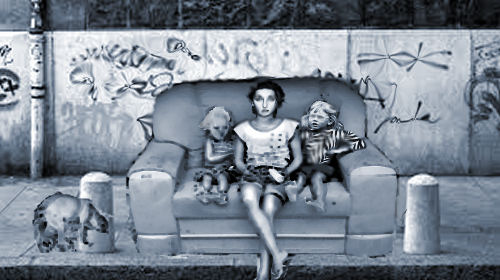
 In the article the writer questions the whole idea of governments making top-down decisions about the size of a country's population.
In the article the writer questions the whole idea of governments making top-down decisions about the size of a country's population.  People who have complained to me of poor coverage by the Australian media of the underlying reasons for Britain's exit from the EU will enjoy these shows. They report on various aspects, including the possibility of preventing the privatisation of British hospitals and mining, the ability to try to end Britain's live transport of domestic animals for thousands of kms, the ability to stop fracking, the desirability of a decrease in house prices, the reasons why people outside the big cities voted against the EU, and mass immigration in an economy where unemployment is already high and numbers are an issue.
People who have complained to me of poor coverage by the Australian media of the underlying reasons for Britain's exit from the EU will enjoy these shows. They report on various aspects, including the possibility of preventing the privatisation of British hospitals and mining, the ability to try to end Britain's live transport of domestic animals for thousands of kms, the ability to stop fracking, the desirability of a decrease in house prices, the reasons why people outside the big cities voted against the EU, and mass immigration in an economy where unemployment is already high and numbers are an issue.  For the past ten years Australians have been subjected to an exceptionally high level of population growth and now they are losing patience. (Article first published on June 13, 2016 at the
For the past ten years Australians have been subjected to an exceptionally high level of population growth and now they are losing patience. (Article first published on June 13, 2016 at the 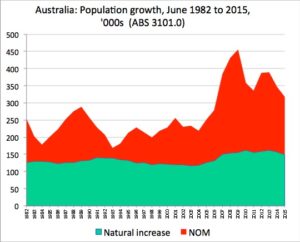
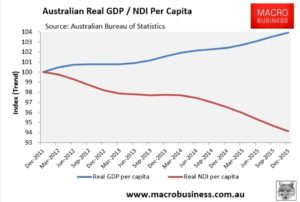
 The OpenAustralia Foundation, the charity that runs a
The OpenAustralia Foundation, the charity that runs a 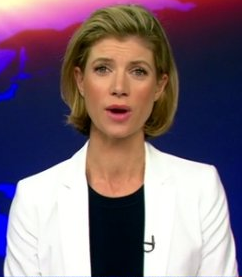


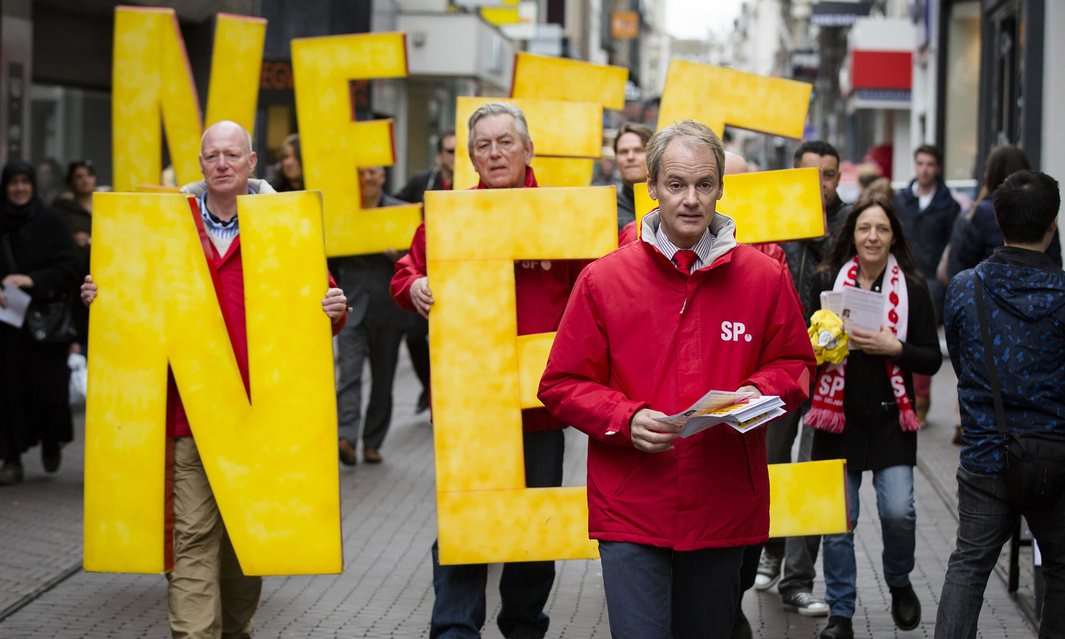
 The globally unique and lovable Carnaby's Cockatoo exists only in the South West of WA. They are a totem for Noongar people and a part of our shared cultural and natural heritage. But the cockatoos are endangered and we are at risk of losing them forever.
The globally unique and lovable Carnaby's Cockatoo exists only in the South West of WA. They are a totem for Noongar people and a part of our shared cultural and natural heritage. But the cockatoos are endangered and we are at risk of losing them forever.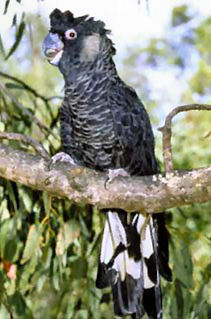 Instead of helping the cockatoos to recover, the State Governments own analysis shows the Government's Green Growth Plan would further drastically reduce the population of these beautiful birds, intelligent, social and long-lived birds.. By locking in the clearing of thousands of hectares of bushland that the birds rely on, numbers of these already rare birds would be reduced by half and the long-term survival of the population would be placed in question.
Instead of helping the cockatoos to recover, the State Governments own analysis shows the Government's Green Growth Plan would further drastically reduce the population of these beautiful birds, intelligent, social and long-lived birds.. By locking in the clearing of thousands of hectares of bushland that the birds rely on, numbers of these already rare birds would be reduced by half and the long-term survival of the population would be placed in question. Kenneth Eade is a legal thriller writer who chooses difficult and original subjects, of the kind that preoccupy candobetter.net readers and authors. This article foreruns the imminent publication of The Spy Files and is based on Kenneth's research for that novel. See also
Kenneth Eade is a legal thriller writer who chooses difficult and original subjects, of the kind that preoccupy candobetter.net readers and authors. This article foreruns the imminent publication of The Spy Files and is based on Kenneth's research for that novel. See also 
Recent comments